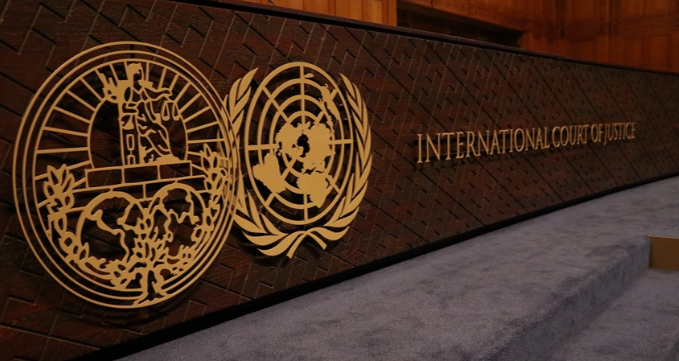“Pakistan’s Judicial Independence Undermined” as the country’s Parliament passed the 26th Constitutional Amendment, significantly weakening the judiciary’s autonomy and diminishing the rule of law and human rights protections, according to the International Commission of Jurists (ICJ). The amendment introduces sweeping institutional changes to Pakistan’s judicial structure, particularly affecting the Supreme Court and High Courts.
“These changes introduce an unprecedented level of political influence over judicial appointments and administration, eroding the judiciary’s ability to function independently and effectively as a check on state excesses and a protector of human rights,” said Santiago Canton, Secretary General of the ICJ.
Secretive Passage Raises Concerns
The Senate rushed the “26th Constitutional Amendment” through within hours of its introduction on the evening of Sunday, 20 October. By early morning on Monday, 21 October, the National Assembly passed it, and the president swiftly granted assent, making it official law. Legal experts express alarm over the secrecy surrounding the draft amendments, which lawmakers passed without public consultation or debate.
Legal experts express alarm over the secrecy surrounding the draft amendments that lawmakers passed without consulting or debating the public.
He added that this instance blatantly violated the principle of the rule of law and separation of powers, which ensures that citizens and their elected representatives have the right to participate in the legislative process.
Key Changes to Judicial Appointments and Independence
The ICJ highlighted several key provisions of the amendment that directly undermine judicial independence by placing it under executive and parliamentary control.
Changes to the Judicial Commission of Pakistan
Previously, the Judicial Commission of Pakistan (JCP), responsible for nominating judges for the Supreme Court and High Courts, was composed mostly of judges. Under the amendment, the composition of the JCP now includes two members of the National Assembly, two senators, and one female or non-Muslim member nominated by the Speaker of the National Assembly. These political appointees, along with existing members like the Law Minister and Attorney General, reduce the number of judicial representatives to a minority. For instance, in appointing Supreme Court judges, only five of the 13 JCP members are required to be judges.
Judicial Commission’s Administrative Powers Expanded
In addition to nominating judges, the amendment grants the JCP the power to establish “constitutional benches” within the Supreme Court and High Courts. These benches will exclusively handle cases involving constitutional interpretation and the enforcement of fundamental rights. Critics argue that this provision allows politically influenced bodies like the JCP to create specific benches to hear politically sensitive cases, undermining the impartiality of the judiciary.
This restructuring also impacts High Courts, as JCP-appointed constitutional benches will now take on cases involving writ jurisdiction, raising concerns about the fairness of these proceedings.
Appointment of the Chief Justice of Pakistan
Another significant change is the process for appointing the Chief Justice of Pakistan (CJP). Previously, the most senior judge of the Supreme Court automatically assumed the role. The new amendment introduces a Special Parliamentary Committee (SPC) composed of eight members of the National Assembly and four senators, tasked with nominating the CJP from among the three most senior Supreme Court judges. The SPC will hold its meetings on camera, and they have not outlined any criteria for the nomination process, leaving it open to political manipulation.
Grounds for Removal Expanded
The amendment also updates the grounds for removing judges. Previously, only incapacity or misconduct allowed for their removal. The amendment introduces “inefficiency” as a new criterion for removal, though it fails to define what constitutes inefficiency or the threshold for such a charge. This vague provision opens the door for political abuse, allowing for the removal of judges who do not align with government interests.
Violation of International and Constitutional Protections
The ICJ emphasized that these changes violate Article 14 of the International Covenant on Civil and Political Rights (ICCPR), which guarantees the right to a fair and independent judiciary. Article 10A of Pakistan’s Constitution also enshrines the right to a fair trial, which the new amendment undermines.
“The United Nations Human Rights Committee has repeatedly affirmed that judicial independence is an absolute right and that any system where the judiciary is influenced or controlled by the executive is incompatible with an independent tribunal,” the ICJ noted.
Reform or Control?
While acknowledging that some reforms to improve efficiency and transparency in Pakistan’s judicial system may be necessary, the ICJ asserts that these amendments do not achieve those goals.
“These changes are not about reforming the judiciary to make it more transparent or accountable,” said Canton. “They are an attempt to subjugate the judiciary and bring it under the executive’s control, violating fundamental principles of the rule of law, separation of powers, and judicial independence.”
The passage of the “26th Constitutional Amendment” marks a critical moment in Pakistan’s legal and political history, with long-term implications for the judiciary’s ability to act as an independent body.



